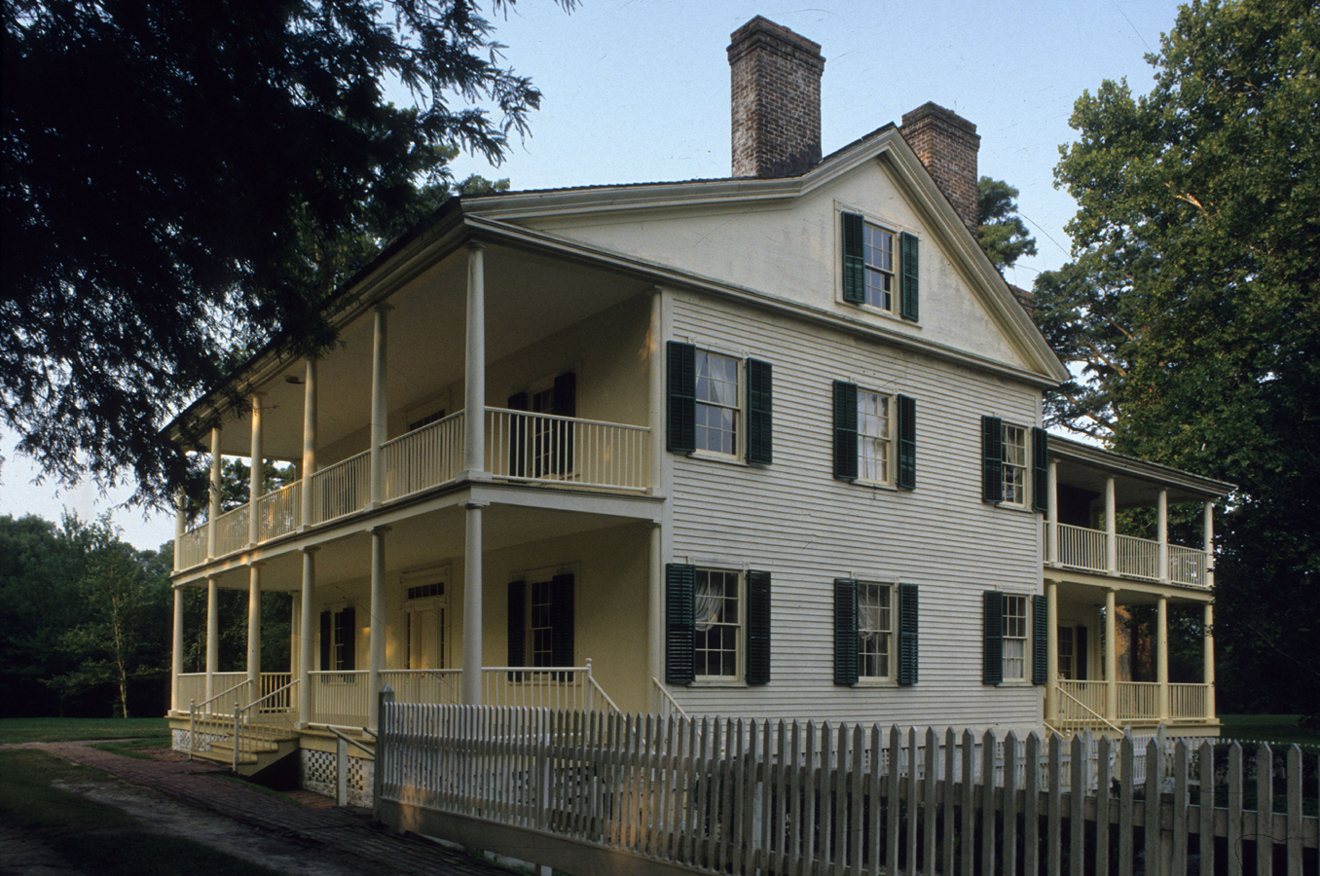Josiah
Collins & Somerset
Plantation during the War
(Washington County)
Featured Character – The Home Front

Somerset
Place
Courtesy of Preservation
North Carolina
and
Tim Buchman
Born in Somersetshire,
England, Josiah Collins came to the colonies in 1773. In 1777, Collins moved to Edenton and set up
a mercantile partnership with two other men.
Ten years later, Collins formed the Lake Company, a venture to drain and
cultivate land on the shores of Lake Phelps in Tyrrell
County. After purchasing one-hundred and thirteen
slaves directly from Africa, the partners
purchased 109,978 acres. In 1816,
Josiah Collins bought out his other partners and he named the entire enterprise
Somerset Plantation, after his home county in England. Collins’s slaves grew rice, wheat, and corn
on the newly drained fields. They also
cut cypress shingles, which earned the highest profits. Neither Josiah nor his son, also named Josiah
Collins, lived at Somerset. Overseers maintained the plantation while the
family actually resided at the Homestead Plantation near Edenton. Josiah Collins’s grandson, Josiah Collins
III, was the first member of the family to actually live at Somerset.
His father built the present manor house as a wedding present in
1830. By the 1860, the Collinses
personally owned 4,000 cleared acres worked by three-hundred and twenty-eight
slaves, making Josiah Collins III one of the three largest slaveholders in North Carolina. A strong Unionist, Collins evacuated his
family and slaves to Hillsborough after the Union invasion of the Albemarle region in
1862. The plantation did not easily
adapt to free labor. In 1870, Collins’s
widow sold Somerset
to W.B. Shepard. A majority of the land
eventually fell into the hands of the state and federal governments. The Department of Cultural Resources
currently maintains the Collins’s former plantation as Somerset State Historic
Site. Descendents of both the Collinses
and their slaves held several reunions at Somerset.